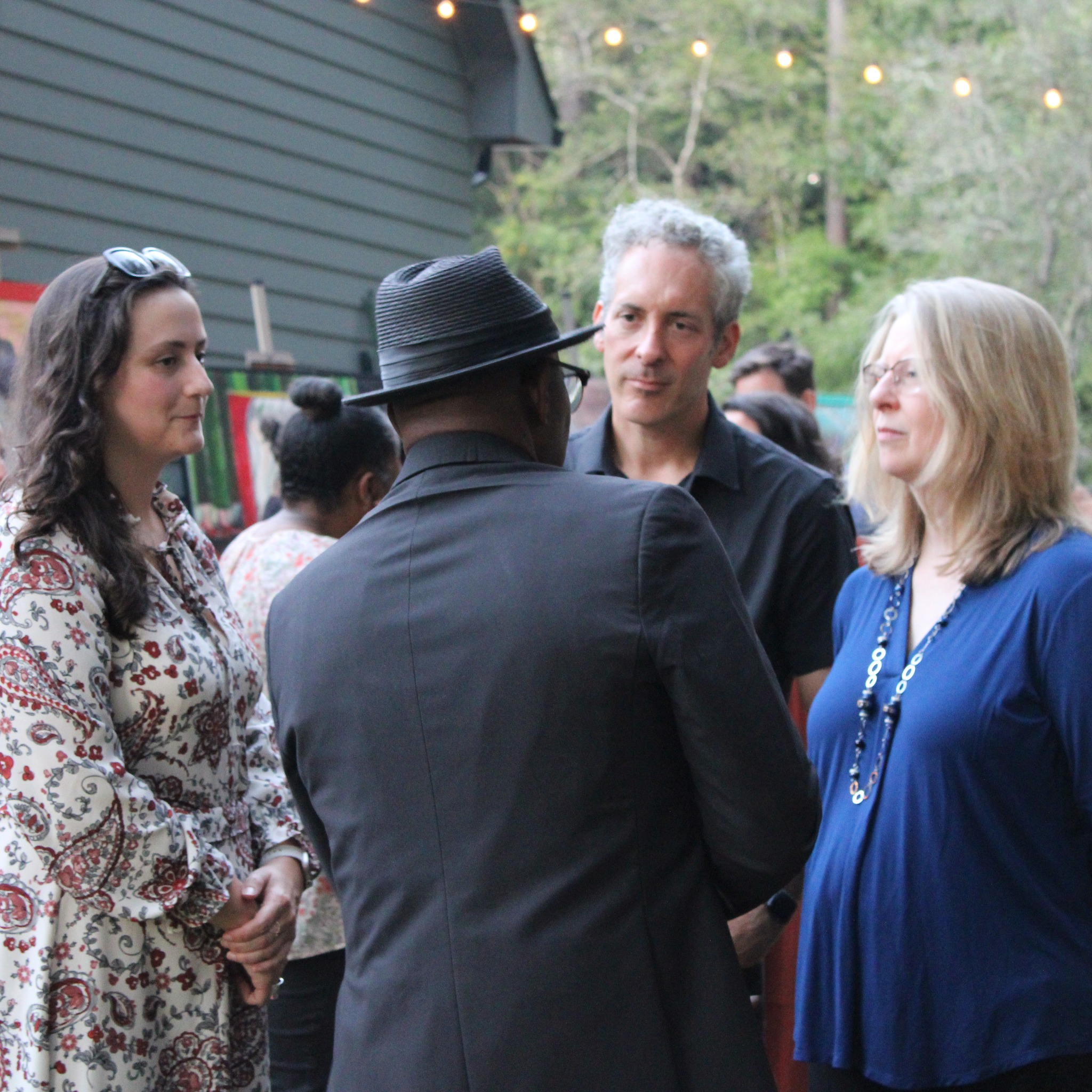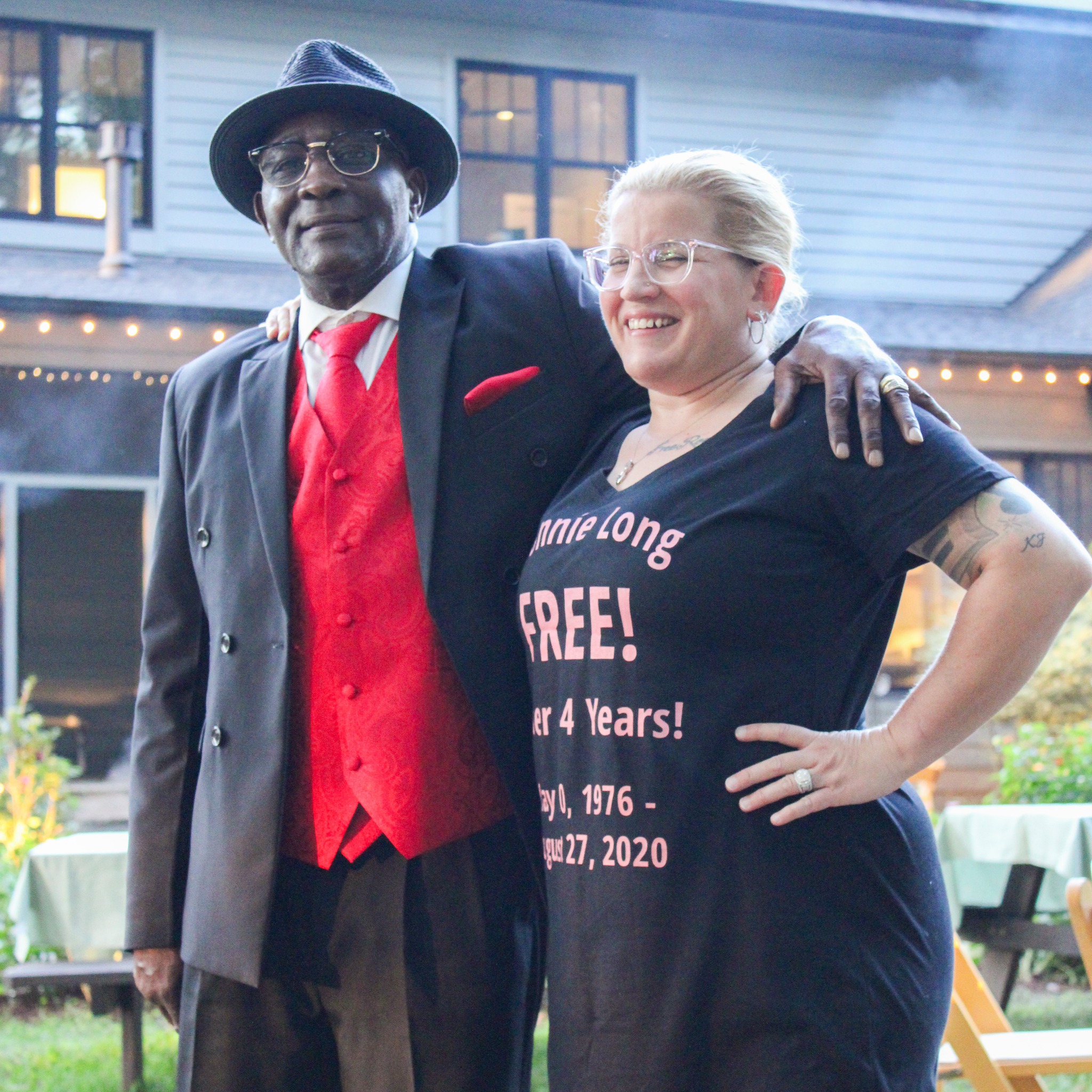Ronnie Long thanks Wrongful Convictions Clinic with gift to support its work
Long honored the work of all Duke Law's 12 clinics in helping to secure justice for those who could not otherwise afford legal representation
 Dean Kerry Abrams with Ronnie Long
Dean Kerry Abrams with Ronnie Long
Ronnie Long, a former client of the Wrongful Convictions Clinic, honored the clinic's efforts to prove his innocence with a gift to support its work.
Long, who was exonerated in 2020 after 44 years of wrongful imprisonment, announced the gift at a gathering he and his wife, Ashleigh Long, hosted to show his gratitude to the Duke Law students, faculty, and staff who assisted with his case. Long also expressed his admiration and appreciation for Duke Law’s 12 clinics that provide critical legal training for students and access to justice for those who, like him, would otherwise lack the assistance of counsel
“Our clinics help people stay in their homes, get the health care and education they need, obtain political asylum, launch small businesses, and so much more,” said Kerry Abrams, the James B. Duke and Benjamin N. Duke Dean of the School of Law, who spoke at the event.
“It’s very meaningful to receive a gift of support from a former clinic client, and especially meaningful coming from Ronnie, who suffered such a grave injustice. I’m grateful to Ronnie and Ashleigh for their generosity and the trust they have placed in us to continue this crucial work.”
Long was released from prison in August 2020 after being incarcerated for 44 years following a 1976 rape trial marked by police misconduct and the suppression of exculpatory evidence. The Wrongful Convictions Clinic had fought to prove his innocence since 2015.
Clinical Professor Jamie Lau ’09, who was Long’s lead attorney, said he was grateful to see Long giving back to the clinic.
“While everything we did for Ronnie was a result of our resolute belief in his innocence and without expectation of anything in return, we are honored that Ronnie has decided to support the clinic and our efforts to free other innocent people who are wrongfully incarcerated in North Carolina,” Lau said.
“His ongoing support of various causes close to his heart since his release has been an amazing thing to witness, and I am fortunate to have a front row seat to see him making a difference in the world with his generosity.”
Long received a pardon of innocence from Gov. Roy Cooper and in January 2024 settled a civil lawsuit against the City of Concord and the North Carolina State Bureau of Investigation. The terms included the second largest wrongful conviction settlement ever recorded and a formal apology from the City of Concord acknowledging “significant errors in judgement and willful misconduct by previous [C]ity employees that led to Long’s wrongful conviction and imprisonment.”
The celebration was held at the home of North Carolina State Senator Graig Meyer, an early supporter of Long’s innocence claim, and his wife, Kym Meyer.
The Wrongful Convictions Clinic investigates plausible claims of innocence made by people incarcerated for felonies in North Carolina. Since its founding at Duke Law School in 2008 by James E. Coleman, the John S. Bradway Distinguished Professor of the Practice of Law at Duke and the clinic’s director, and Charles S. Rhyne Clinical Professor Emerita of Law Theresa Newman ’88, faculty and students have helped secure the exonerations of 11 men including, most recently, Quincy Amerson, who was released in March after spending 23 years in prison.


